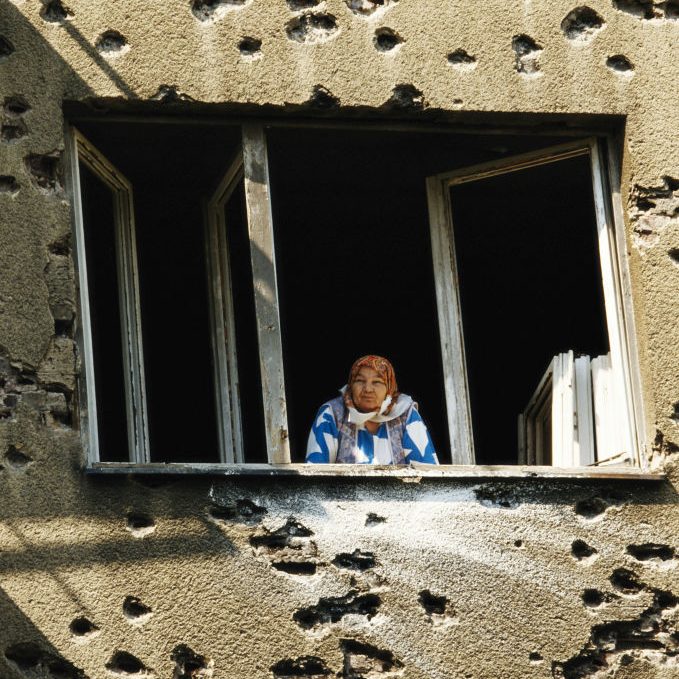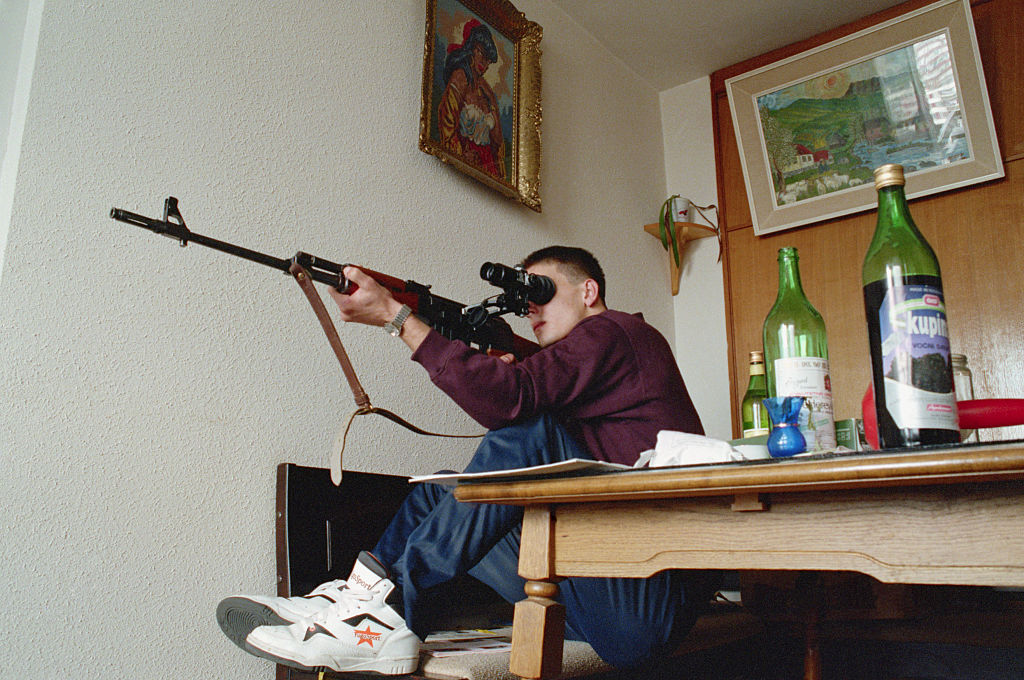Unveiling the Dark Secrets of “Sniper Tourism” During the Bosnian War
The recent allegations surrounding wealthy foreigners allegedly engaging in what has been described as “sniper tourism” during the devastating Bosnian War have reignited discussions about the moral complexities of armed conflict and the commodification of violence. Reports have surfaced indicating that affluent individuals from various Western nations purportedly traversed to Bosnia to participate in the chilling act of targeting civilians from the hills overlooking Sarajevo. This shocking narrative has prompted Italian authorities to initiate a formal investigation into these grave accusations, aiming to uncover the truth behind these alleged war crimes.
The Yugoslav Wars, which occurred in the early 1990s, were marked by profound brutality, resulting in the deaths and displacement of countless innocent civilians. Sarajevo, the capital of Bosnia and Herzegovina, endured an unrelenting siege from 1992 to 1996, which stands as the longest siege of any capital city in modern history. During this harrowing period, it is estimated that over 11,000 individuals lost their lives due to sniper fire, shelling, and other wartime atrocities. This tragic chapter in history saw communities torn apart, families displaced, and a city reduced to ruins.

The Siege of Sarajevo: A City Under Fire
During the nearly four-year siege, the citizens of Sarajevo faced unimaginable atrocities. With over 10,600 people killed and tens of thousands more wounded, the impact of the conflict on everyday life was staggering. Residents learned to navigate a city where sniper fire was a constant threat, especially in notorious locations like “Sniper Alley,” where civilians often became targets. This unprecedented suffering led to widespread international outrage and a call for accountability regarding the actions of those implicated in the violence.
The siege not only decimated lives but also fragmented the very fabric of society. Basic necessities such as food, water, and medical supplies became scarce, and humanitarian efforts were often thwarted by the ongoing conflict. Streets once filled with laughter and community spirit were silenced, as families sought shelter in basements and other makeshift hideouts to escape the omnipresent threat of violence. In this atmosphere of fear and desperation, the very idea of “sniper tourism” takes on a grotesque and chilling dimension, illustrating the depths of human depravity.

Chilling Allegations of a “Human Safari”
Italian journalist Ezio Gavazzeni has been instrumental in bringing to light the disturbing allegations surrounding “sniper tourism.” In a detailed 17-page complaint submitted to Milan prosecutors, he asserts that wealthy tourists traveled to Sarajevo not for humanitarian reasons but for the grim satisfaction of taking human lives. Gavazzeni described how individuals from various nations, including Germany, France, and the United States, reportedly paid exorbitant fees to gain access to sniper positions, where they could shoot defenseless civilians—an activity devoid of any political or ideological motivations.
Reports suggest that the fee to participate in these horrific acts could reach as high as €100,000 (approximately $91,000), depending on the target. Disturbingly, it has been claimed that children were considered the most valuable targets, followed by uniformed personnel, while older civilians could allegedly be shot without charge. This commodification of human life, likened to a grotesque safari, has left many questioning the depths of human depravity, particularly among those who wield power and privilege. To think that individuals would derive pleasure from taking lives, especially in a conflict where so many suffered, is a haunting reflection of moral decay.

The Role of Authorities and Documentation
In light of these allegations, Italian prosecutors are collaborating with a specialized unit of the Carabinieri police that focuses on terrorism and organized crime. Their aim is to identify and question possible suspects, including several Italian nationals whose names have already surfaced. The Bosnian government has expressed its willingness to cooperate fully with the investigation, demonstrating the seriousness with which these allegations are being approached.
Additionally, the claims of sniper tourism have gained further credibility through the 2022 documentary “Sarajevo Safari,” which includes testimonies from survivors and eyewitnesses. This documentary chronicles the experiences of those who lived through the siege and underscores the chilling reality of foreign nationals engaging in acts of violence during one of Europe’s darkest hours. The accounts reveal a disturbing juxtaposition between the thrill-seeking behavior of tourists and the plight of ordinary citizens caught in the crossfire. This contrast underscores not only the horrors of war but also the ethical implications of individual actions in times of conflict.
Controversy and Skepticism Surrounding the Claims
Despite the grave nature of these accusations, skepticism exists regarding the feasibility of such “sniper tourism.” Some former British soldiers stationed in Sarajevo during the conflict have voiced doubts about the existence of these so-called tourist snipers, characterizing the accounts as potentially exaggerated or mythical. The logistical challenges of bringing civilians into a war zone, where multiple checkpoints and ongoing military activity posed significant risks, further complicate the narrative. Moreover, there are broader discussions about the implications of these claims, particularly concerning the nature of war itself and how narratives are shaped. The skepticism is rooted in a desire to critically examine such sensational claims while recognizing the very real suffering that occurred during the conflict. As various voices interject into the discussion, the quest for factual accuracy remains paramount; yet the horror of what transpired cannot be dismissed.
A Collective Call for Truth and Justice
The notion that privileged individuals could exploit a city under siege for entertainment has sparked outrage not only in Bosnia and Herzegovina but across the globe. Bosnian Consul in Milan, Dag Dumrukcic, has emphasized the importance of uncovering the truth surrounding these allegations and holding accountable those responsible for such heinous acts. The international community is watching closely, recognizing that the implications of these investigations extend beyond individual culpability; they touch on broader ethical questions regarding war, humanity, and the responsibility of those in power. As this investigation unfolds, it serves as a sobering reminder of the atrocities that occurred during the Yugoslav Wars and the enduring scars left on the collective conscience of humanity. The pursuit of justice for the innocent victims of these conflicts remains a critical endeavor, underscoring the necessity to confront the darker aspects of human nature and the consequences of war. It also invites reflection on how society can ensure that such horrors are never repeated, encouraging dialogue about accountability, empathy, and the obligation to protect the vulnerable. In conclusion, the disturbing phenomenon of “sniper tourism” not only sheds light on the darkest corners of human behavior during armed conflict but also calls into question the moral responsibilities of individuals who choose to witness or participate in violence. As investigations proceed, the hope is that they will uncover the truth, provide justice to victims, and remind the world of the dire consequences of unchecked privilege and the commodification of suffering.

















